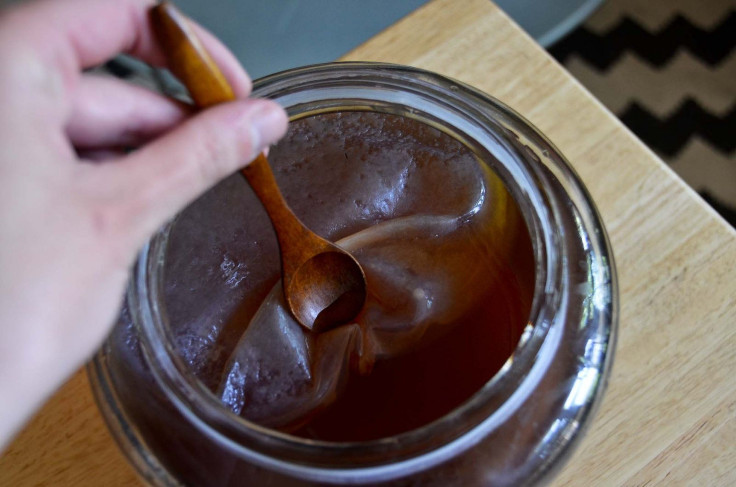Kombucha Tea May Help Lower Blood Sugar Levels In Diabetes Patients

Kombucha is a type of fermented tea known for a multitude of health benefits, including its use as a probiotic drink. A new study has found that kombucha may help lower blood sugar levels in diabetes patients.
Previous studies showed that kombucha can slow down the digestion of carbs in rats and improve their liver and kidney functions. In the latest study, a research team from Georgetown University's School of Health, the University of Nebraska-Lincoln and MedStar Health evaluated the impact of fermented tea on blood sugar levels in people with type 2 diabetes.
The findings of the clinical trial, published in the journal Frontiers, showed drinking a cup of kombucha daily for four weeks lowered average fasting blood glucose levels from 164 to 116 milligrams per deciliter. According to the American Diabetes Association, blood sugar levels before meals should be between 70 to 130 milligrams per deciliter.
"Some laboratory and rodent studies of kombucha have shown promise and one small study in people without diabetes showed kombucha lowered blood sugar, but to our knowledge, this is the first clinical trial examining the effects of kombucha in people with diabetes. A lot more research needs to be done but this is very promising," Dan Merenstein, a study author from Georgetown's School of Health, said in a news release.
During the trial, the team evaluated 12 participants who were either given eight ounces of kombucha or an identical placebo beverage daily for four weeks. The participants were not told what they were drinking. After a break for two months, the kombucha and placebo were swapped between the groups, and the trial continued for another four weeks.
"A strength of our trial was that we didn't tell people what to eat because we used a crossover design that limited the effects of any variability in a person's diet," Merenstein said.
Researchers evaluated the three components formed during the fermentation of kombucha – lactic acid bacteria, acetic acid bacteria and Dekkera yeast – and found all three microbes were present in almost equal measures.
The team believes the findings about kombucha call for potential dietary intervention in people with diabetes.
"We were able to provide preliminary evidence that a common drink could have an effect on diabetes. We hope that a much larger trial, using the lessons we learned in this trial, could be undertaken to give a more definitive answer to the effectiveness of kombucha in reducing blood glucose levels, and hence prevent or help treat type-II diabetes," said Chagai Mendelson, a lead author of the study.



























